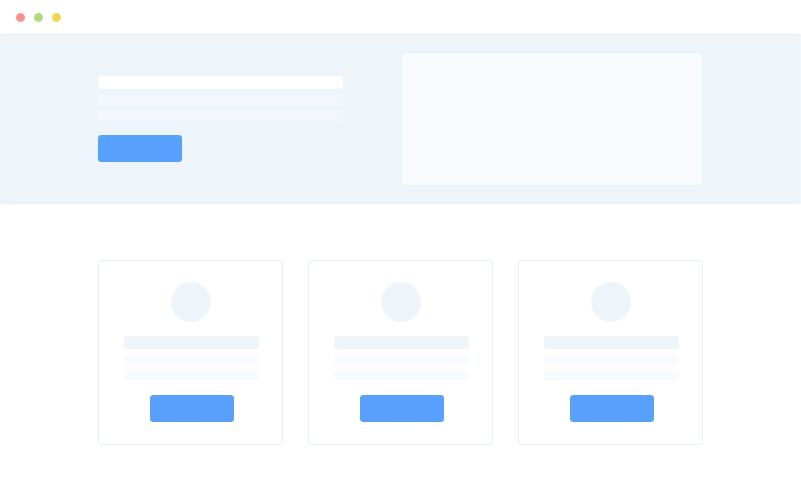What is PLR Articles Content
Get It Done With Us
In internet marketing, private label rights is a license where the author sells most or all of the intellectual property rights to their work. The license is defined by the author of the work and has no legal definition. Private label rights is derived from private labeling.
Similar licenses include resell rights, also used in internet marketing.
The license
The license is used for various digital products such as articles, ebooks, software, graphic templates etc. Because there are many buyers of the same product, the price of a single unit is generally lower than if one would create a similar product from scratch (either by himself or by outsourcing). However, people can also purchase private label content that is limited in distribution, minimizing the number of competing marketers using the same content. (PLR Articles Content)


Private Label Content
Private Label Content comes in many different formats, including PLR reports, ebooks, articles, graphics, templates and even videos.
While licenses differ with each author and seller, the basic premise is that the license permits buyers to re-brand the content under their own name and brand (excluding copyright). In general practice this means that the product can be modified, sold, resold or repurposed in many different formats. In some cases authorship on the original product is allowed and with unrestricted private label, buyers are often able to resell the same rights they’ve acquired although not all private label releases offer or permit license distribution or transfer. (PLR Articles Content)
Marketers use private label products for reselling under their own brands or in the case of written products for online marketing through channels like article directories, content syndication, ebook directories, slide-sharing websites and similar.
Private Label Content comes with different rights depending on the developer so it’s important to thoroughly check each license prior to use, to become familiar with any restrictions that may be in place.
Advantages
Claimed advantages to using Private Label Content are: (PLR Articles Content)
- Saving time.
- Saving money, compared to hiring a writer or buying exclusive rights
- Gaining a reputation as an “expert” on a subject while knowing nothing about it.
Source: Wikipedia
PLR Articles Content
Article Spinners
Article spinning is a specific writing technique used in search engine optimization (SEO) and in other applications. Website authors may use article spinning on their own sites to reduce the similarity ratio of rather redundant pages or pages with thin content. Content spinning works by rewriting existing articles, or parts of articles, and replacing specific words, phrases, sentences, or even entire paragraphs with any number of alternate versions to provide a slightly different variation with each spin. This process can be completely automated or written manually.
Many article marketers believe that article spinning helps avoid the feared penalties in the search engine results pages (SERPs) for using duplicate content. If most uses of spun content were considered spamdexing (a black hat SEO practice) years ago, it is now admitted as a fair way to lower the similarity ratio, hence the near duplicate or duplicate content, on large catalogs of more or less similar items. Originally, most spun content was produced through automated methods, resulting in articles which were hard or impossible to read. However, as article spinning techniques are refined and used in a more sophisticated way, they result in providing readable articles that human beings may have trouble distinguishing from original content. (PLR Articles Content)
Article spinning is also used in many other types of applications such as message personalization and chatbots.
Automatic spinning (PLR Articles Content)
Automatic rewriting can change the meaning of a sentence through the use of words with similar but subtly different meaning to the original. For example, the word “picture” could be replaced by the word “image” or “photo”. Thousands of word-for-word combinations are stored in either a text file or database thesaurus to draw from. This ensures that a large percentage of words are different from the original article.
The problem with simple automatic writing is that it cannot recognize context or grammar in the use of words and phrases. Poorly-done article spinning can result in unidiomatic phrasing that no human writer would choose. Some may substitute a synonym with the wrong part of speech when encountering a word that can be used as either a noun or a verb, use an obscure word that is only used within very specific contexts, or improperly substitute proper nouns. For example, “Great Britain” could be auto spun to “Good Britain”. While “good” could be considered a synonym for “great”, “Good Britain” does not have the same meaning as “Great Britain”.
Article spinning can use a variety of methods; a straightforward one is “spintax”. Spintax (or spin syntax) uses a marked-up version of text to indicate which parts of the text should be altered or rearranged. The different variants of one paragraph, one or several sentences, or groups of words or words are marked. This spintax can be extremely rich and complex, with lots of depth levels (nested spinning). It acts as a tree with large branches, then lots of smaller branches up to the leaves. To create readable articles out of spintax, a specific software application chooses any of the possible paths in the tree; this results in a wide variations of the base article without significant alteration to its meaning.
As of 2017, there are a number of websites which will automatically spin content for an author.
Manual spinning
Because of the problems with automated spinning, website owners may pay writers or specific companies to perform higher quality spinning manually. Writers may also spin their own articles, allowing them to sell the same articles with slight variations to a number of clients or to use the article for multiple purposes, for example as content and also for article marketing.
Plagiarism and duplicate content (PLR Articles Content)
Google representatives say that Google doesn’t penalize websites that host duplicate content, but the advances in filtering techniques mean that duplicate content will rarely feature well in SERPs, which is a form of penalty.[1] In 2010 and 2011, changes to Google’s search algorithm targeting content farms aim to penalize sites containing significant duplicate content. In this context, article spinning might help, as it’s not detected as duplicate content.
Source: wikipedia
List of a few articles spinners;
https://free-article-spinner.com/
http://www.bestfreespinner.com/
https://smallseotools.com/article-rewriter/
http://ezarticlelink.com/articlespinner/free.php


